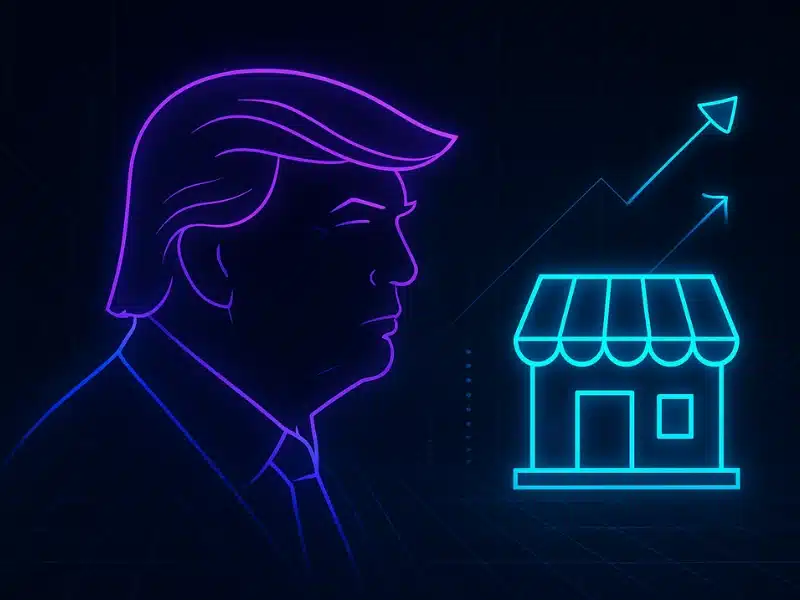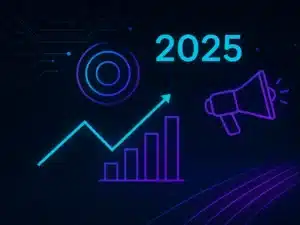Blog Post
What the 2025 Trump Administration Could Mean for Small Businesses
- Update
- Read Time: 2 Min
Share

With the election of President Donald Trump in 2024, small businesses are carefully considering how the new administration’s policies could impact key aspects of their operations, from tax obligations to digital marketing and access to capital. Here’s an overview of what to expect and how to prepare for potential changes.
Tax Policy Adjustments: More Dollars to Reinvest in Your Business
The Trump administration has historically aimed to lower taxes for businesses, and the 2024 campaign included plans to reduce the corporate tax rate from 21% to 15%. For small businesses, this could mean a lighter tax burden and more cash on hand for reinvestment.
What This Could Mean for Your Business:
- Enhanced Profit Margins: Lower tax rates could allow small businesses to retain more profits, providing extra resources for reinvestment in areas like marketing, operations, or staff development.
- Potential Tax Structure Benefits: With these changes, business owners might want to explore tax-efficient structures that maximize savings. Consulting with a tax advisor can help identify the best approach to keep your business financially agile.
Digital Advertising Regulations: More Flexibility for Data-Driven Marketing
The new administration’s approach to digital regulation emphasizes free-market principles, potentially limiting additional restrictions on data usage and advertising. For small businesses, this could allow continued flexibility in using customer data to target marketing more effectively.
Implications for Your Digital Strategy:
- Targeted Ad Campaigns with Greater Reach: With fewer restrictions on data-driven advertising, small businesses can make more informed decisions on reaching their ideal audience. This flexibility allows for more personalized and impactful digital marketing campaigns.
- Creative Marketing Opportunities: With a less restrictive landscape, businesses have the freedom to experiment with engaging digital formats, such as short-form videos, interactive ads, and other tools to connect with customers in dynamic ways.
Economic Incentives: Potentially Greater Access to Capital and Growth Support
The Trump administration has traditionally focused on deregulation and economic growth incentives, especially for small businesses. Expected initiatives might include expanded business loan programs, tax incentives for certain areas, and simplified access to capital.
Opportunities for Business Growth:
- More Accessible Financing Options: Enhanced loan programs could provide small businesses with more accessible funding for growth. Whether you’re planning to expand operations, invest in new equipment, or build your digital infrastructure, having more financing options can make these goals attainable.
- Strategic Benefits of Opportunity Zones: For businesses in designated Opportunity Zones, tax benefits may make expansion into these areas more attractive. For small businesses, this means potential savings and new customer bases in regions with rising demand and fewer competitors.
Preparing for the 2025 Business Landscape
Aligning your business with potential policy changes can help you stay competitive in the coming years. With anticipated benefits in taxes, digital advertising flexibility, and easier access to funding, now is an ideal time to consider how these shifts might align with your goals.
At Reisinger Strategies Group, we’re here to support small businesses in navigating the changing landscape with data-driven marketing strategies and innovative digital solutions. From designing personalized digital campaigns to enhancing customer engagement with AI tools, we provide tailored services that can help you take advantage of new opportunities.
As you plan for 2025, we’re here to help you align with these changes and set your business up for growth and success. Check out our blog, 2025 Marketing Strategy: 5 Steps to Success, for actionable insights to refine your strategy.



